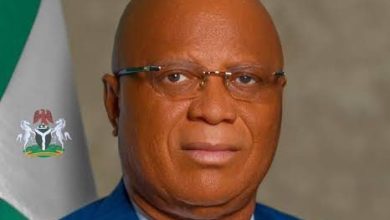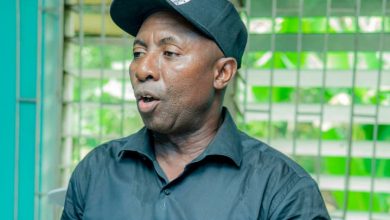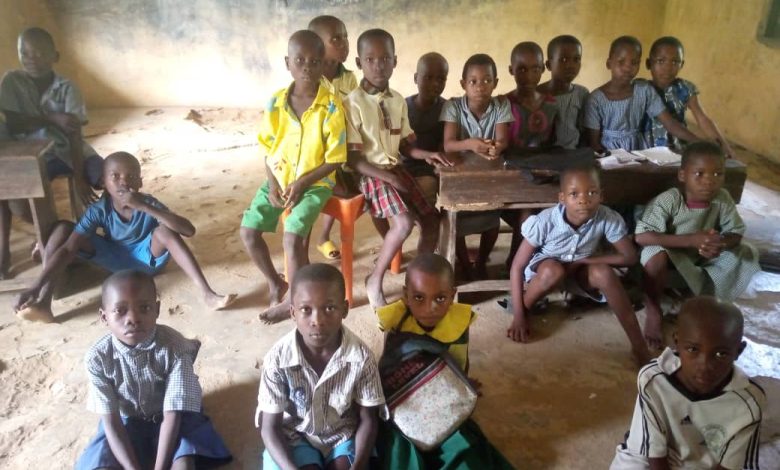
Despite the introduction of a free and compulsory education policy in Akwa Ibom State since 2008, a significant number of girls in rural areas are not enrolled in schools or are forced to drop out of the educational system daily, often due to factors beyond their control.
This stark reality also reveals a critical gap in the existing policy, which prioritises girls’ enrolment in rural areas over addressing retention rates and ensuring the completion of education for these girls.
Interestingly, this alarming situation was highlighted in the 2020 report by the National Bureau of Statistics (NBS), which revealed that Akwa Ibom State had a staggering 581,800 children out of school, with females making up nearly half of this number, at 298,161.
To tackle this dire situation, educational experts believe that girls’ enrolment and retention rates can be effectively addressed if there is a well-structured Education Sector Plan (ESP) to serve as a roadmap for the government to deliver education goals holistically within the education system.
Moreover, for the ESP to be effective, it must be gender-responsive so that the needs of girls are identified and gender barriers that impede girls from continuing their education can be easily addressed, enabling them to thrive in a learning environment without potential challenges.
To highlight these deep-seated issues affecting girls’ enrolment in school and completion of their education, Crystal Express Newspaper conducted interview sessions with a group of girls, teachers and parents from rural communities in Akwa Ibom State, specifically in Oruk Anam, Uyo, Uruan, and Abak Local Government Areas.
They bravely shared their personal stories, providing a behind-the-scenes view into the hurdles and barriers that a girl child in Akwa Ibom faces throughout her educational journey.
Nancy Ime, from a rural village in Oruk Anam Local Government Area, revealed that she was unable to pursue secondary education due to financial constraints. Despite the state’s free education policy, Nancy realised that there were hidden costs of fees, uniforms, textbooks, and other educational materials that made public schooling expensive.
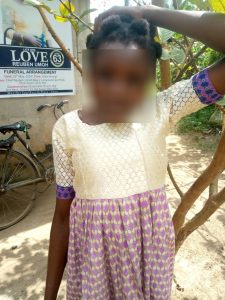
Being left to their fate, some girls in Nancy’s situation resort to hawking or early marriage as means of survival. This underscores the importance of implementing policies that will reduce the impact of poverty on girls’ education.
Also, in the Oruk Anam Local Government Area, this reporter visited the only government school in the Ikot Ntuk community. The school building had become an eyesore, with few students seen playing outside due to a shortage of teachers.

From the school records, the student enrolment at the beginning of the third term was 1,047 pupils, comprising 462 boys and 585 girls. However, by the first term of the 2024/2025 academic session (September 2024), the enrollment had decreased to 900 pupils, with 500 boys and 400 girls.
Related: The Untold Hardship Of Children With Disabilities Over GRESP’s Non-Implementation in Akwa Ibom
Explaining the situation, a teacher, who spoke anonymously, revealed that parents withdrew their children due to the school’s dilapidated infrastructure, noting that the pupils learn while sitting on cracked, bare floors, which pose health risks.
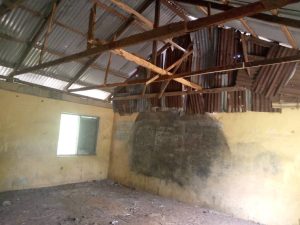
Meanwhile, this reporter observed girls wearing torn, unfamiliar uniforms and slippers; this highlighted the grim reality that contradicts the policy of free and compulsory education, which promises to provide necessary educational materials to ensure girls have access to quality education.
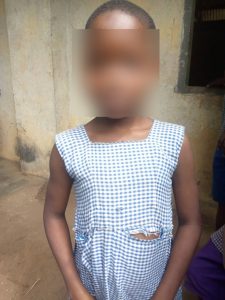
Another factor impeding rural girls’ access to education is pregnancy. This is exemplified in Blessing Essien’s story, who allegedly became pregnant by her teacher and was forced to abandon her secondary school studies at just 13 years old.
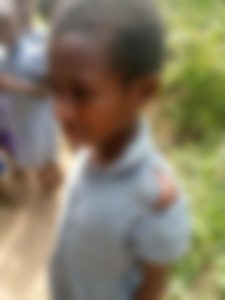
The 2018 Nigeria Demographic and Health Survey data indicated that the pregnancy rate among 15- to 19-year-olds in Akwa Ibom State was estimated at 12.8 per cent. It was the third-highest in the South-South region.
This becomes worrisome as girls continue to drop out of school due to pregnancies. The story of Blessing Essien also underscores the fact that many female students suffer sexual violence from their male teachers.
Read Also: Akwa Ibom’s GRESP Policy Delay Puts Schoolgirls at Risk of GBV
Emphasising this ordeal, the Director of the Gender-Based Violence (GBV) department in the Ministry of Justice, Barr Emem Ette, told this reporter that most girls are victims of this form of gender-based violence, but unfortunately, they are often swept under the carpet due to fear of stigmatisation.
Corroborating this statement, a group of female students who schooled in Abak Local Government confided in this reporter that some male teachers at their former school frequently harassed them, and these incidents often went unreported by school authorities.
However, Barr Emem Ette noted that through the Ministry of Justice and the Akwa Ibom State Gender-Based Violence Management Committee, where she serves as Secretary, there has been a significant increase in GBV awareness in some schools across the state.
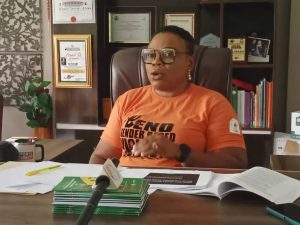
According to her, the state government has made an effort to collaborate with other non-governmental organisations to address gender-based violence in the state. This social issue of GBV is prevalent among girls, which is why there is a need for an education policy to be implemented to address incidents of sexual violence in schools accurately. Moreover, provisions should be made for girls to return to school after giving birth to complete their education.
Parental negligence is also a negative impact that can affect rural girls’ enrollment in schools, especially female children with disabilities.
According to Mr. Edmond Ekanem, Zonal Coordinator of the Joint National Association of Persons with Disabilities (JONAPWD), many families are fuelled by the misguided belief that having a child with a disability is a curse. This leads to children being confined at home and denied education due to shame and stigma from their parents or guardians.
Girls with disabilities face additional barriers, particularly in distance from schools. Victoria Essien from the Uruan Local Government Area told this reporter that her 10-year-old daughter, who has cerebral palsy, remains at home due to the distant location of the only government-owned inclusive school from their home.
Also noteworthy is the lack of implementation of WASH infrastructure in Akwa Ibom State. Despite having a WASH policy in place, which encompasses water, sanitation, and hygiene, most schools in the state lack these essential facilities. In an interview, a schoolgirl from the Uruan Local Government Area revealed that the toilets in her school are consistently unhygienic, prompting many girls to opt for open defecation in the bush.
This practice exposes them to risks such as reptile attacks, sexual violence and menstrual hygiene management issues.
Furthermore, poor sanitation, inadequate toilets, and insufficient water supply can lead to girls missing school or dropping out altogether due to the lack of WASH facilities. By addressing these WASH challenges, the government can help create a more inclusive and equitable learning environment where girls can thrive in their educational pursuits.
Regarding government intervention, the Akwa Ibom State government has allocated ₦63.275 billion to the education sector for the 2025 fiscal year. Speaking to one of the governor’s aides, Hon. Ubong Ikpe said the state government has made significant impacts on the education sector in Akwa Ibom State.
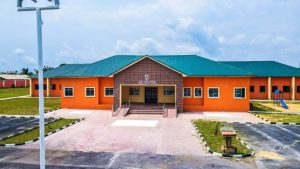
He mentioned the construction of various primary schools, including CKS Primary School, Uyo; Model Primary Schools in Idung Offiong, Ikot Ibritam, and Afaha Itam; and others.
Additionally, he highlighted the provision of funds for Senior Secondary Schools Examination (NECO) accreditation, payment of examination fees for WAEC for all secondary school students, and provision of school uniforms, shoes, school bags, and books for pupils in primary schools.
Addressing the aforementioned obstacles hindering girls’ educational advancement in Akwa Ibom State, it is essential to recognise the systemic barriers that create gender disparities among girls in the educational system.
A well-structured Gender-Responsive Education Sector Plan (GRESP) can similarly help identify these barriers and address the needs of girls. It can, furthermore, promote gender equality, create equal opportunities for both girls and boys in the learning environment, as well as foster a culture of respect and dignity within the education system.
Although the government is rebuilding model schools to improve the educational sector in the state, it would be better to also direct these financial expenditures towards renovating other rural schools across the 31 local government areas, which are in a dilapidated state.
By taking such strategic steps, the necessary facilities will be provided, creating a conducive learning environment for girls to excel.
Meanwhile, effective implementation of a Gender Responsive Education Sector Plan (GRESP) requires the state government to collaborate with education stakeholders, non-governmental organisations, traditional rulers, and other relevant bodies to formulate an educational framework that will address the setbacks. By doing so, Akwa Ibom can create a conducive learning environment where girls can access quality education without challenges.
Note: Nancy Ime and Blessing Essien are not the real names of these sources, as their identities have to be protected.
This report was published with collaborative support from Impact House and the System Strategy and Policy Lab (SSPL).


